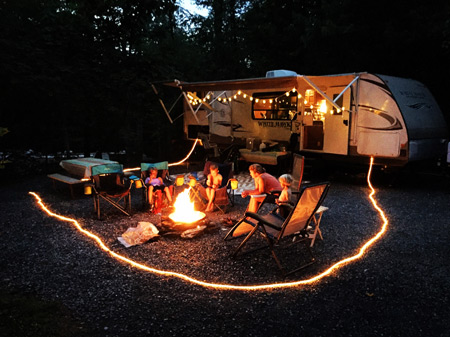Camping is one of America’s favorite pastime activities. Over 77 million households have at least one individual that camps regularly, which translates to 6 out of every ten homes. When you purchase a campground franchise, you leverage on the steady base of loyal clientele to solidify your investment while enjoying a greater ROI.
While buying a campground sounds lucrative, some investors mistakenly fail to do their due diligence. They end up appending their signature to the franchise agreement and discover their mistake later.
These pitfalls lead to consequences that leave investors regretting their decision. Avoid making similar errors on your journey to a family campground’s ownership.
1. Rushing to Purchase a Campground Franchise
There is nothing wrong with getting excited about the new business venture. However, being overzealous and rushing the franchising process can cloud your judgment leading to costly mistakes. Carefully think it out. Why do you want to invest in a campground? Do you have enough funds to finance your purchase? Do you understand all the contractual obligations that fall under the franchise contract? Dig deeper into the running of an RV park and campsite before making your decision.
2. Failure to Go Through the Franchise Disclosure Document
Running a successful franchise business requires a proper understanding of the market metrics. Conduct adequate research before settling on camping resorts for sale. A franchise disclosure document (FDD) discloses specific information about a particular franchise to potential franchisees. Under the FTC’s Franchise Rule, all franchisors must avail the FDD to prospective buyers 14 days before payment or signing of any agreement. Don’t shy from asking questions and clarification about the running of their business before investing.
3. Not Determining the Level of Support Offered
Starting and running a family campground can be overwhelming. You may need to have the right partner by your side to guide you through. Take to account the level of support and training that the franchisor provides. Do the training and support measure up to other franchisors within the campgrounds industry? A less supportive franchise can make it harder for you to achieve business success.
4. Placing Unrealistic Independence Expectations
The prospect of becoming your own boss through venturing into a campsite business can be quite alluring. However, it is important to realize that to purchase a campground franchise places you under your franchisor. As a campground franchise, you are part of a larger, established brand. You may need to be aware of the various franchisor restrictions that control how you conduct business. Read through the restriction clauses and the different royalty rates before signing the agreement.
5. Not Having a Well-Defined Business Plan
Just like any investment in real estate, your success pegs on patience and hard work. You may need to draft a detailed business plan with a clear road map on the future of your business. Set realistic short-term and long-term goals that will guide you through the initial phase of the franchising contract. Most franchisors provide experts that can help you draft a 3-5-year business plan for your campground franchise.
A well-managed family campground can provide a steady source of income for the franchisee. However, it is essential to conduct due diligence before you purchase a campground franchise. Avoiding these errors will set you on a path to business success.
